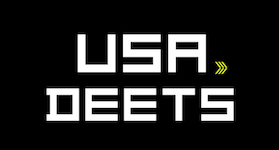
The FintechZoom Mortgage Calculator is an online tool designed to help you estimate your monthly mortgage payments in the United States. It simplifies the often complex calculations involved in understanding mortgage affordability.
Table of Contents
What is a Mortgage Calculator?
Think of a mortgage calculator as your personal crystal ball for homeownership. It takes all the complex loan terms and spits out a clear picture of your estimated monthly payments. This empowers you in two key ways:
- Budgeting with Confidence: Knowing your estimated payments upfront allows you to see how much house you can comfortably afford. This is crucial for responsible budgeting and avoiding financial strain.
- Comparing Loan Options: Playing around with different interest rates and loan terms in the calculator helps you compare loan options. This can be instrumental in finding the best deal for your unique situation.
Types of Mortgage Calculators:
These online tools simplify the process by estimating your monthly payments based on different loan scenarios. However, with various types of mortgage calculators available, choosing the right one can be confusing. Let’s explore the different options to empower you on your homebuying journey:
1. Basic Mortgage Calculator:
This is the simplest option, ideal for getting a quick estimate of your monthly payment. You typically input factors like:
- Home price: The purchase price of the house you’re considering.
- Down payment: The amount you’ll pay upfront towards the house.
- Loan term: The duration of your mortgage (e.g., 15 years, 30 years).
- Interest rate: The annual percentage rate (APR) associated with the loan.
The calculator then provides an estimated monthly payment, giving you a basic idea of affordability.
2. Advanced Mortgage Calculator:
This calculator goes beyond the basics, factoring in additional costs associated with homeownership. You might be able to input details like:
- Property taxes: The annual taxes levied on the property’s value.
- Homeowner’s insurance (HOI): The insurance that protects your home against damages.
- Private mortgage insurance (PMI) (if applicable): This insurance is required if your down payment is less than 20% of the home’s value on a conventional loan.
By including these additional costs, the advanced calculator provides a more comprehensive picture of your monthly housing expenses.
3. Refinance Calculator:
If you’re considering refinancing your existing mortgage, this calculator is your friend. It helps you determine if refinancing can potentially save you money on your monthly payments or loan term. You might input details like:
- Current loan balance: The remaining amount you owe on your existing mortgage.
- Current interest rate: The APR you’re currently paying on your mortgage.
- New loan term: The desired length of your refinanced mortgage.
- Estimated new interest rate: This could be based on current market rates or obtained from a lender.
The refinance calculator helps you compare your current mortgage situation with potential savings from refinancing.
4. Debt-to-Income (DTI) Ratio Calculator:
While not strictly a mortgage calculator, this tool is crucial for understanding loan eligibility. The DTI ratio compares your total monthly debt payments (including housing expenses) to your gross monthly income. Lenders use this ratio to assess your ability to manage a mortgage payment. Some mortgage calculators might incorporate a DTI ratio estimation feature.
What is a Mortgage and How exactly does it Work?
A mortgage is essentially a loan you take out from a bank or lender to buy a house (or sometimes other types of real estate). It’s a long-term loan, typically lasting 15 to 30 years, where you gradually pay back the borrowed amount plus interest. The house itself acts as collateral, meaning if you can’t keep up with the repayments, the lender could repossess the property.
Here’s a breakdown of how it works:
Borrowing the Money:
You apply for a mortgage with a specific loan amount in mind. This amount typically covers a portion of the house’s purchase price, with the rest being covered by a down payment you make upfront.
Interest Rates:
The lender charges you interest on the borrowed amount. This is basically the cost of borrowing the money. There are different types of interest rates, like fixed (stays the same throughout the loan) or adjustable (can change over time).
Monthly Payments:
You’ll make regular monthly payments to the lender. These payments typically include two parts: principal (the actual amount you borrowed) and interest. Over time, with each payment, more goes towards the principal, reducing what you owe.
Ownership:
While you’re making mortgage payments, you gradually gain ownership of the house. Once you’ve fully paid off the loan (including principal and interest), you’ll own the house outright.
Types of Mortgages:
In the US, there are several main types of mortgages to consider, each with its own advantages and requirements. Here’s a breakdown of some common ones:
By Loan Source:
- Conventional Loans: These are the most common type of mortgage, offered by banks and lenders and not backed by the government. They typically require a good credit score (usually above 620) and a down payment of at least 20%, though some lenders may allow lower down payments with private mortgage insurance (PMI).
- Government-Backed Loans: These are mortgages insured by the government, making them easier to qualify for with lower credit scores and down payments. However, there are often income limits and other restrictions. Here are some of the main types:
- FHA Loans: Insured by the Federal Housing Administration, these loans are easier to qualify for with a lower down payment (often as low as 3.5%).
- VA Loans: Offered by the Department of Veterans Affairs, these loans are for veterans and eligible service members with often no down payment required and competitive interest rates.
- USDA Loans: Backed by the US Department of Agriculture, these loans are for rural areas and often require no down payment for qualified borrowers.
By Interest Rate:
- Fixed-Rate Mortgage: This is the most popular option. The interest rate stays the same throughout the entire loan term, providing predictability in your monthly payments.
- Adjustable-Rate Mortgage (ARM): With ARMs, the interest rate can adjust periodically (often annually or every few years) based on the market. This can lead to lower initial payments but also carries the risk of payments increasing in the future.
Other Types:
- Jumbo Loan: This is a conventional loan that exceeds the conforming loan limit set by Fannie Mae and Freddie Mac (government-sponsored enterprises). These loans are for more expensive properties and typically require a larger down payment and higher credit score.
- Home Equity Loan/Line of Credit (HELOC): These are loans that use the equity (built-up value) in your existing home as collateral. They can be used for various purposes like renovations or debt consolidation.
Choosing the Right Mortgage:
The best type of mortgage for you depends on your individual circumstances, including your credit score, down payment savings, income, and future plans. It’s wise to consult with a qualified mortgage lender to discuss your options and determine which loan best fits your needs.
FintechZoom Mortgage Calculator (Hypothetical Comparison)
| Category | Important Points | Pros | Cons |
|---|---|---|---|
| Type | Basic or Advanced (uncertain without access) | – Provides a quick estimate of monthly payments (if basic). – May factor in additional costs like property taxes and homeowner’s insurance (if advanced). | – Limited details compared to advanced calculators (if basic). – Might not include features like DTI ratio estimation. |
| User Interface | Presumed to be user-friendly and simple to navigate. | – Easy to use for people with no financial expertise. – Straightforward design allows for quick input and results. | – May lack advanced customization options for experienced users. |
| Speed of Calculation | Known for delivering estimates in seconds. | – Saves time during the house hunting process. – Allows for quick comparisons of different loan scenarios. | – Potential sacrifice of in-depth calculations for faster estimates. |
| Cost Breakdown (Potential Feature) | Might display how your payment is divided between principal and interest. | – Provides transparency into the true cost of your mortgage. – Helps you understand how much goes towards paying down the loan vs. interest. | – Might not offer detailed breakdowns of additional costs (if basic calculator). |
| Overall | A potential starting point for budgeting and exploring affordability. | – User-friendly and time-saving for initial estimates. – Offers valuable insights for house hunting. | – Estimates may not be as comprehensive as advanced calculators. – Requires further consultation with a lender for a definitive mortgage plan. |
How is mortgage calculated?
Formula:
M = P * (r / (1 – (1 + r)^(-n)))
Where:
- M = Monthly mortgage payment (in dollars)
- P = Principal amount of the loan (total amount borrowed)
- r = Monthly interest rate (annual interest rate divided by 12)
- n = Total number of loan payments (loan term in months)
Example:
Let’s say you borrow $200,000 (P) to buy a house. The annual interest rate (APR) on your loan is 5%, and you choose a 30-year fixed-rate mortgage (360 total payments, n).
Step 1: Convert the annual interest rate to a monthly rate
Divide the APR by 12: r = 5% / 12 = 0.004166 (rounded to six decimal places)
Step 2: Plug the values into the formula
M = $200,000 * (0.004166 / (1 – (1 + 0.004166)^(-360)))
Step 3: Solve for the monthly payment
Using a calculator, you’ll find that the monthly mortgage payment (M) is approximately $1,078.12.
Important Notes:
- This example assumes a fixed-rate mortgage, where the interest rate stays the same throughout the loan.
- It doesn’t consider additional costs like property taxes, homeowner’s insurance, or private mortgage insurance (PMI), which can increase your monthly housing payment.
Mortgage Qualification Criteria:
Securing a mortgage hinges on meeting a lender’s criteria to ensure you can repay the loan. Here’s the gist:
- Credit Score: A good score (usually above 620) shows responsible debt management.
- Debt-to-Income Ratio (DTI): Your debt payments shouldn’t exceed a certain percentage (around 36-43%) of your income.
- Down Payment: A larger upfront payment (typically 20%, but can be lower with FHA loans) reduces the loan amount and shows commitment.
- Employment and Income: Stable income with documentation is crucial.
- Savings: Having a financial cushion demonstrates stability.
Conclusion:
The FintechZoom Mortgage Calculator (if its functionalities align with what we discussed) can be a valuable tool in your homeownership journey. It offers a user-friendly interface, quick estimates, and potentially a breakdown of costs. However, remember it’s a starting point. For a definitive mortgage plan and loan options tailored to your situation, consulting a qualified mortgage lender is essential.
References:
- National Association of Realtors (NAR): https://www.nar.realtor/ The NAR website might have sections dedicated to home buying tools, potentially including mortgage calculators.
- Consumer Finance Protection Bureau (CFPB): https://www.consumerfinance.gov/ The CFPB offers educational resources on various financial topics, including a section on mortgage tools.
FAQs
Q: What’s the difference between fixed-rate and adjustable-rate mortgages?
Fixed-rate mortgage: This is a popular option where the interest rate remains constant throughout the entire loan term. This offers predictability in your monthly payments.
Adjustable-rate mortgage (ARM): With ARMs, the interest rate can adjust periodically (often annually or every few years) based on the market. This can lead to lower initial payments but also carries the risk of payments increasing in the future.
Q: What are closing costs?
Closing costs are fees associated with finalizing a real estate transaction. These can include loan origination fees, appraisal fees, title insurance, and various other charges.
Q: Is the FintechZoom Mortgage Calculator accurate?
Without directly accessing the calculator, it’s difficult to definitively assess its accuracy. However, mortgage calculators generally provide estimates based on the information you input. They’re a valuable starting point, but for the most accurate picture, consulting with a qualified mortgage lender is crucial. They can consider your specific situation and creditworthiness to provide a tailored loan quote.
Q: What information does the FintechZoom Mortgage Calculator provide?
The specific information provided by FintechZoom might vary, but a good mortgage calculator should offer:
Estimated monthly payment: This is crucial for budgeting and understanding how much your mortgage will cost you each month.
Breakdown of costs (potential feature): Ideally, the calculator would show how your payment is divided between principal (reducing the loan amount) and interest.
Q: What are the benefits of using the FintechZoom Mortgage Calculator?
User-friendly interface (potential benefit): FintechZoom reportedly offers a user-friendly interface, making it easy for anyone to use.
Quick estimates: It can provide you with a quick estimate of your potential monthly payments, saving time during house hunting.
Budgeting insights: This initial estimate can empower you to budget effectively for your homeownership journey.







